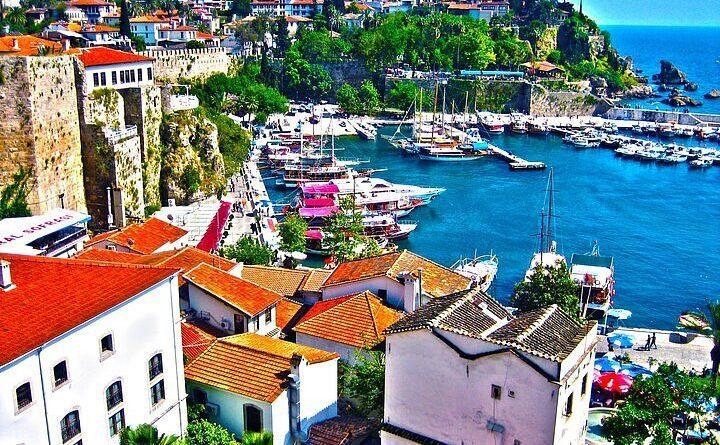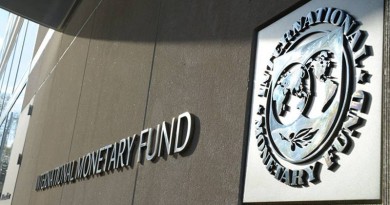Cheap cosmetic surgery in Turkey draws medical tourists
Benita Paloja, a 28-year-old woman from the US, opted to follow in the footsteps of her friends and traveled to Turkey for cosmetic nose surgery. She paid a mere $5,000 (€4,600) and was able to return home after just one week. Working in finance and part-time modeling, Paloja is content with her decision to undergo the surgery. She now exudes more confidence and has secured more modeling opportunities.
She fondly remembers the exceptional care she received at the clinic and remains in contact with the medical team. Paloja notes, “I could have had the same procedure in the US for $30,000 (€27,800), but the level of attention and care I received in Turkey was unparalleled.”
Turkey has experienced a surge in cheap cosmetic surgery and medical tourism since the onset of the COVID-19 pandemic. In 2021, over 670,000 foreigners traveled to Turkey for medical purposes, as reported by the country’s state-owned International Health Services (USHAS) agency. By the following year, this number had increased by 88% to over 1.25 million. The trend continued in the first half of 2023.
Turkish healthcare facilities have reaped significant financial benefits from this influx of international patients, amassing over $2 billion (€1.85 billion) in revenue in 2022. While revenue dipped slightly in the initial months of 2023, experts attribute this decline primarily to the devastating earthquake that struck Turkey in February, claiming over 50,000 lives.
According to the International Society of Aesthetic Plastic Surgery (ISAPS), in 2022, the majority of foreigners seeking medical treatment in Turkey were from Germany, followed by Britain and Switzerland. Among these foreigners, the most popular nonsurgical procedures were Botox and hyaluronic acid treatments for combating wrinkles. The top three surgical procedures were liposuction, rhinoplasty, and breast augmentation.
In addition to these procedures, Turkey has also become increasingly popular for leg lengthening procedures, particularly among men from Western countries who desire to be taller.
One individual who underwent this procedure is a 31-year-old man from the US, known as Ash. Prior to the surgery, Ash was dissatisfied with his body proportions. However, after the surgery, he gained 12 centimeters (4.7 inches) in height and now stands at 184 centimeters (just over 6 feet) tall.
Although Ash admits that the procedure was very painful and the recovery phase was lengthy, he believes it was worth it. He feels much better now and has noticed an improvement in his chances when flirting, as well as gaining more respect from others.
Yunus Oc, an experienced orthopedic surgeon based in Istanbul, has performed over 200 leg lengthening procedures in the past two years. While he used to primarily perform this procedure for medical reasons, such as accidents or growth disorders, he has seen an increase in individuals seeking it for cosmetic purposes.
Oc predicts that the number of leg lengthening surgeries will continue to rise in the next few years. However, he cautions that unlike nose or breast surgeries, leg lengthening procedures can have serious consequences if the desired results are not achieved.
There has been a rise in the number of reports concerning complications arising from cosmetic surgeries conducted in Turkey. Approximately a year ago, the Robert Koch Institute, Germany’s public health agency, disclosed that around 27 individuals experienced poisoning after undergoing a botox stomach treatment. This particular procedure involves injecting botox into the stomach lining to induce a prolonged sensation of fullness. Unfortunately, some patients suffered severe side effects, including muscle weakness, blurred vision, breathing difficulties, and in some cases, paralysis.
In mid-January, a British woman tragically lost her life due to complications from a Brazilian butt lift performed in Istanbul. According to British media, the woman, a mother of three, suffered a fatal heart attack four days after the surgery, which was triggered by a fat embolism. The procedure involves extracting fat from the patient’s body and using it to enhance and enlarge the buttocks.
Given these incidents, one might question the professionalism of Turkish doctors or clinics. However, Dr. Susanne Punsmann, an expert from the North Rhine-Westphalia Consumer Advice Centre in Germany, advises against making generalizations. She emphasizes that there are both competent and subpar healthcare facilities in Turkey, just like anywhere else.
Dr. Punsmann highlights the fact that the title of “cosmetic surgeon” is not legally protected, which is why she recommends that individuals considering treatment in Turkey thoroughly research the qualifications of the doctors or inquire about their experience with the specific procedure they plan to undergo.
Punsmann also emphasizes that doctors who possess the necessary qualifications are referred to as “specialists in plastic and aesthetic surgery.” However, she also mentions that “other doctors, typically surgeons, dermatologists, or gynecologists, are permitted to perform cosmetic surgery.”
Furthermore, she highlights the importance of verifying whether the doctor or clinic is certified according to European standards, such as the ISO standards. This certification indicates that the clinic undergoes regular inspections, among other requirements. Punsmann advises patients to inquire about the materials and laboratory used as well.
Ali Ihsan Okten from the Turkish Medical Association (TTB) cautions individuals to be cautious of noncertified clinics. He warns that the surge in health tourism has led to an increasing commercialization within the industry.
The market is fiercely competitive, with clinics employing aggressive advertising strategies such as sending text and WhatsApp messages, as well as promoting their affordable prices to attract customers worldwide.
Punsmann states that the primary factor for seeking treatment in Turkey is often the lower cost. It is possible to save up to 70% on expenses. For instance, while a breast augmentation procedure in Germany costs a minimum of €4,500 ($4,800), the same procedure can be obtained for as little as €2,500 ($2,700) in Turkey. Similarly, in Düsseldorf, Germany, a surgical procedure to reduce stomach size costs approximately €12,500 ($13,400), whereas in Turkey, it is only a third of that price.
Consequently, Turkey offers significant cost savings, particularly for expensive procedures. However, these savings may lead some individuals to take greater risks. SOURCE: By Deutsche Welle




